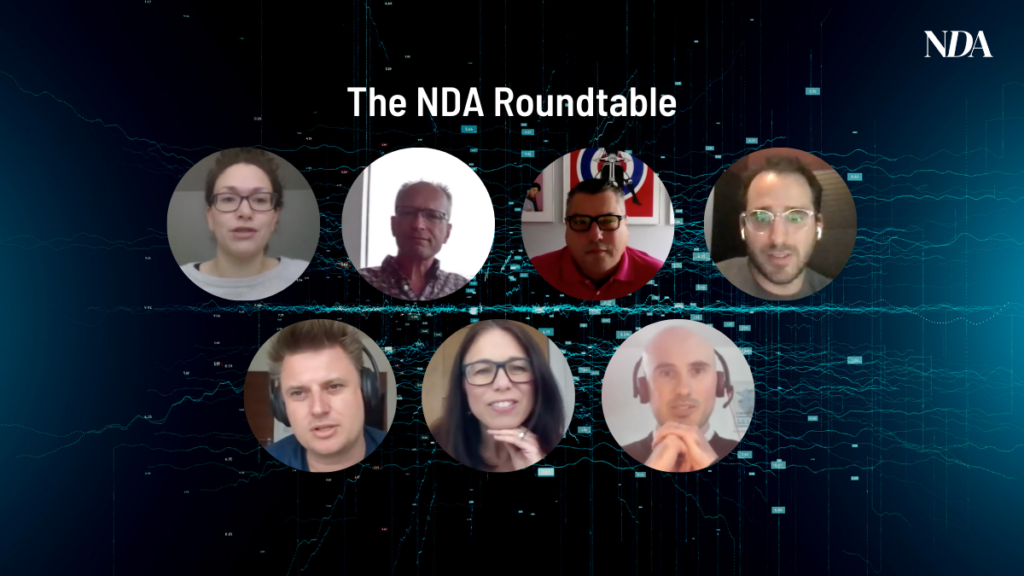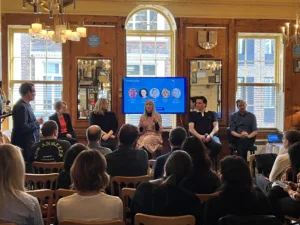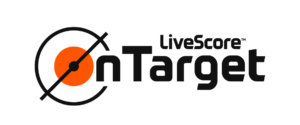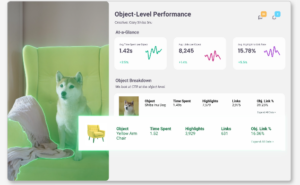At NDA’s Data Roundtable, we were joined by David Fletcher, Chief Data Officer at Wavemaker UK; Paul Bland, Head of Biddable Media at Havas Media Group; Owain Wilson, Managing Partner, Head of Data, Technology & Analytics Strategy at Mediacom UK; Kelly Jacobson Collins, Privacy Compliance Director at Blis; Mark Williams, GTM Director EMEA for Audience & Data Solutions at PubMatic; Alex Kirby, Global Head of Programmatic and Commercial Data at Dennis Publishing; and Matthew Goldhill, Founder & CEO at Picnic Media to discuss data’s role in the future of digital advertising.
Data has been one of the advertising’s biggest talking points for quite a while now, with the industry scrambling to find ways to cope with the deprecation of third-party cookies on Google’s Chrome browser (now delayed until 2023) and Apple’s multiple updates around identity.
The value of data
When discussing data, the phrase ‘value exchange’ often pops up in relation to the consumer. The consumer agrees to provide their data for personalised advertising, so that they can continue to access content provided by publishers on the internet for ‘free’, with the publishers making revenue by serving said advertising on their platforms. However, the question is: has the industry really made it clear to the consumer that this is what their data is being used for?
“I don’t think we’ve done brilliantly as an industry,but we love talking about it. If the industry put as much effort into actually educating consumers as we do talking about it, they would know better,” said Blis’ Collins. “I tell my friends I work in ad tech and they don’t really understand what that is. If I went on to explain the value exchange of their data, it might baffle them..”
Havas Media Group’s Bland added: “There’s definitely something in consumer education on a macro level. Without data, there wouldn’t be a free and open web for people to consume the content and media that they enjoy. So, a macro narrative that can give people a wider understanding of data would be really beneficial.”
Wavemaker’s Fletcher would like to see education improved on the publisher side. “Every consent banner I see gives you an opportunity to go with the default settings or to configure, but it doesn’t tell me what the default is,” he said.
Nonetheless, he acknowledges that “privacy is at the fore because Apple has a campaign and browsers are changing. It’s now being forced on consumers… Third-party cookie deprecation, changes to policy, and campaigns by Apple are at least useful at bringing the discourse to life again”.
On the other hand, while Picnic’s Goldhill agreed that the industry hasn’t done a good job of showing the value exchange, he was a little bit more scathing in his assessment of Apple’s privacy campaign.
“I do think the Apple advert is bad – not because of its message, which is very compelling to users, but because of the party that’s created it and the message it gives across. It takes a very much heads and tails, good versus evil view on it,” he said
“It’s being used by a company to further their own business motives. It’s backhandedly going around it and has channels which give it greater access to data than other companies do on its platform.”
Goldhill believes data privacy isn’t quite as straightforward as Apple is leading consumers to believe and pointed to Google’s Search, Netflix, and Spotify as positive uses of high-quality data to serve information, movie and TV recommendations, and music recommendations respectively.
“Personalisation and customisation based on data is good,” Goldhill continued. Just saying, ‘push this button, and no one can ever see what you’re doing’ completely misses the trade off and stops having that necessary conversation.”
Food for thought
When it comes to having those conversations, publishers are best positioned to speak to their users and help them understand the value exchange.
“We have a huge role to play as publishers. We’re able to speak to our users more closely, and, generally, the value exchange is slightly more understood one-on-one. People don’t like the way that one-on-one can become one to many, or one to an unknown amount,” said Dennis’ Kirby. “It’s exemplified a lot with the ‘creep’ factor. People don’t like to feel like they’re being followed or they are being taken advantage of.
“As an industry we’ve possibly made things more complicated for the user, under the guise of trying to help them have control. Control is great, but most people aren’t going to want that level of control,” Kirby continued. “They’re going to want ease, and they’re going to want to feel comfortable and secure in what they’re doing. So, I think we’ve potentially overcomplicated it slightly. We need to go back to basics, but there is an education piece that also needs to be done which publishers can play a huge part in.”
Williams of PubMatic, which works directly with publishers on programmatic, echoed Kirby’s belief that the industry is overcomplicating things, but questioned how much consumers really care about their data, because people tend to agree to things on the internet without giving it much thought anyway.
“Pretty much everyone scrolls through the lengthy Ts and Cs on any website and app and generally tends to click ‘agree’,” explained Williams. “That begs the question: do they actually care about the data? Consumers tend to give their consent on two or three different conditions. They base it on whether it’s a site they use regularly, if it’s a well-known brand, or if it’s recommended by a friend. If it falls into one of those three criteria, their consent tends to be a given.”
Mediacom’s Wilson also questioned the education piece, but from the standpoint of morality and ethics.
“We could all ask someone close to us whether they understand how the internet works and why they’re able to consume content free of charge, but I would imagine that nine out of 10 don’t have a clue,” said Wilson. “I think it comes to a bigger moral question. It feels like we’re trying to justify educating consumers on why this content is free and what we do with their data is fine. And I’m not sure I, or brands, agree with that. I don’t think it’s fine. Should we go on a big mission to educate consumers on why content is free? Is that ethically right? Are we comfortable with the way that publishers, ad tech, or other companies are utilising data?”
Part two follows tomorrow.









